- Home
- Terry C. Johnston
Crack in the Sky tb-3 Page 6
Crack in the Sky tb-3 Read online
Page 6
After holding his first rendezvous three years earlier in 1825, General Ashley continued to refine his rendezvous system until the price of beaver would eventually become standardized at somewhere around three dollars a pound—a figure that earned a trapper some five to six dollars a plew. It was hard, cold, lonely, and ultimately dangerous work for the few hundred men who chose to make their livelihood here in the wilderness, and perhaps on the edge of eternity.
From the northern rivers bordering the Canadian provinces all the way south into territory claimed by Mexico, at any one time less than four hundred Americans scattered their moccasin prints across a trackless wilderness, migrating seasonally across a mapless terrain, confronting a bewildering array of climatic conditions, geography, and native inhabitants. Here in these early years of the nineteenth century, in these opening days of the far west, for a special class of man there simply was no other life imaginable.
To take your life into your own hands, not beholden to any other man, to test your own resolve and mettle against all the elements God or the devil himself could hurl at a puny, insignificantly few bold men … ah, but that was the heady stuff of living!
True freedom: to live or die by one’s own savvy and pluck.
Such was the nectar that lured these bees to the hive. Freedom was the sirens’ song that enticed this reckless breed of men to hurl their fates against the high and terrible places.
Despite the cold and the Blackfoot—despite the odds of sudden death.
After constructing two travois for Kinkead and Bass, the other seven trappers had reloaded their pack animals and pointed their noses south for the Owl Creek Mountains, driving the extra Blackfoot ponies along behind them. Scratch was the first to knit up after their ordeal.
Twice a day one of Hatcher’s men would make a poultice of beaver castoreum mixed with the pulverized roots or pulp of one plant or another, smearing the smelly concoction into the wounds troubling both men. It wasn’t long before Bass could move about camp without tiring out too quickly. But for the better part of two weeks he contented himself by remaining in camp with Kinkead when the others went out to trap—staying busy by fleshing the beaver hides, then stretching them on willow hoops, or untying the packs to dust the plews and check for infestation before rebundling them in their rawhide cords. Eventually the raw, red flesh around his wounds became new, pink skin that he could gently stretch more each day. Inside, however, he was knitting together much slower.
Nowhere near as slow as Kinkead.
For the longest time Matthew continued to cough up bright-red blood, later on bringing up dark, half-congealed phlegm. With as little as the man ate, over the following weeks the others began to notice the gradual change in their friend as his huge face thinned, accentuating the dark, liver-colored bags beneath his eyes.
“I wanna see Rosa,” Kinkead declared quietly one night as the rest joked and laughed around their nighttime fire, that simple plea coming right out of the blue.
The others fell silent immediately, some choosing to stare at their feet or the ground or the fire. Only Hatcher and Bass could look at the man still imprisoned on his travois.
“Natural for a man to wanna see his wife,” Jack consoled as he knelt beside Kinkead.
“W-wife?” Titus asked, surprised. “You married?”
Hatcher explained, “She’s a good woman.”
“She back east?”
Kinkead shook his head. “Taos. She’s a Mexican gal.”
“I’ll be go to hell,” Bass exclaimed. “What the devil you doing trapping beaver up here in the mountains when you got a wife waiting for you down in the Mexico settlements?”
“Don’t make sense no more, does it?” Matthew declared. “One time it did. Now—it don’t make sense to me no more. God, I ache in my bones I wanna see Rosa so bad.”
Scratch did not know what to say—struck dumb just watching the way Kinkead’s eyes filled with tears. “Man has him someone who loves him, someone he loves … I’d sure as hell feel same as you, Matthew—wanting my woman with me if I was healing up.”
Dragging a hand under his nose, Matthew’s voice cracked as he said, “I decided today …”
Hatcher asked, “Decided what?”
Kinkead couldn’t look at any of them. “Figger to quit the mountains.”
“Qu-quit the mountains?” bawled John Rowland.
Hatcher asked, “What ye gonna do if ye plan on staying back in Taos?”
“Rosa and me, we’ll be fine,” Kinkead protested. “I figger I’ll find something.”
“Where you gonna live?” Solomon inquired. “Where the two of you set up home?”
With a shrug Kinkead responded, “I stay with her at her papa’s house when I’m back in Taos. S’pose that’s what we’ll do till we find us some li’l place of our own.”
“Damn,” Caleb Wood sighed. “If that don’t take the circle! I can’t believe you’re quitting the mountains.”
“I’d do it this minute if I could get back down there,” Kinkead complained.
Hatcher explained, “We ain’t tramping that far south till fall hunt’s over.”
“All the way to Taos?” Bass inquired.
Suddenly Matthew’s tired face grew more animated as he turned toward Titus. “That’s prime doings! You’re gonna see Taos shines, Scratch! Purely shines!”
“We got us some more trapping to do afore spring is done,” Jack confided. “And then we’ll be making for ronnyvoo over at Sweet Lake. After that we was planning on moseying down to the Bayou Salade for the fall hunt afore climbing on over to Taos.”
“Where’s this Bayou Sa … Sa—”
“Salade,” Elbridge Gray recited. “Way south of here, Scratch. Not far from the Mexican country itself. Up on the headwaters of the Arkansas it be. Pretty place—and full of beaver too.”
Now Bass turned to Kinkead. “So, nigger … you’re married to this Mexican gal named Rosa.”
He watched how it made Matthew smile.
“Yep, a purty lady she is too.”
“But near as I can callate, you ain’t been back there in more’n a year already.”
Just that saying of it appeared to take some more starch “out of Kinkead. He stared down at himself, lying helpless in that travois. “Makes me hurt more, Scratch—thinking just how long it’ll be till I see her again. That’ll make it near two years by the time I hold her. We left Taos end of winter a year ago.”
“But you knowed we wasn’t going back till this winter,” Caleb said.
“I knowed …” And Matthew’s voice trailed off.
“It don’t matter if he knowed it was gonna be a long time when he left Taos,” Bass said firmly. “Things is different now. The man come close to going under to Blackfoots. Ain’t onreasonable to me for Matthew to be getting so homesick.”
Caleb turned back to the fire, grumbling, “Homesick ain’t no sick for a free man to have.”
“Can I get you anything, Matthew?” Bass asked. “You had enough to eat?”
“Ain’t got me much of a appetite no more,” he replied. “You’re coming with us to ronnyvoo, ain’cha, Scratch?”
“Planned on it.”
Hatcher turned around at the fire to ask, “Ye got plans for the fall hunt, Scratch?”
“Like to see me this Bayou Salade you boys talk of. Yeah, I figger I’d throw in with your bunch.”
“How ’bout Taos?” Kinkead asked, almost breathless with excitement. “You coming there with us when I get back home? Get to meet my Rosa!”
Bass dug his fingernails at his beard. “Taos for the winter, is it?”
Rufus hurrawed, “A man can’t do him no better for winter!”
“Senoreetas and lightnin’,” Hatcher chimed in. “A man can keep hisself real warm down in Taos come winter!”
Titus asked, “Lightnin’?”
“Mexican drink they make down there to the Taos valley,” Caleb Wood explained. “Take the top of your head off like a tomahawk.”
“That ain’t no bald-face lie neither,” Hatcher declared. “So, ye figger to stay on with our bunch till next spring?”
“Winter in Taos?” Bass repeated. “From the sounds of it—a man’d be plumb filled with stupids if’n he passed up the chance to ride into Mexico with this outfit!”
3
“They ain’t gone and pulled out on us awready—are they, Jack?” whined John Rowland.
“I dunno, boys.” Hatcher shook his head in consternation. “That down there’s s’posed to be the place—right where we come together last year.”
“Where the blazes is our ronnyvoo?” Isaac Simms growled as he shaded his eyes and squinted into the distance.
Digging frantically in the possibles pouch hanging at his hip, Caleb Wood roared in alarm, “Cain’t see a goddamned camp down there!”
“You reckon we’re late?” Elbridge Gray groaned, his big bulb of a nose looking all the bigger for the morose look on his face.
Scratch peered up at the sky, reckoning from the track of the sun just what part of summer it was right then. “I don’t callate as we’re late, Jack.”
“There!” Caleb Wood suddenly cried, the short brass-cased looking glass stretched out from his right eye. “I see some horses, way off yonder!”
Squinting in the high sunlight, the rest shielded eyes to peer into the distance, eager for that reassurance.
“A herd?” Hatcher asked skeptically.
Wood shook his head. “Not no big cavvyyard, but there be a bunch.”
“Hope to shout they’re white men,” Solomon Fish prayed, sweeping a hand under that long beard of blond ringlets.
Wood went on to explain, “And I see some white spots back in the brush and trees, Jack.”
“Take ’em to be tents?”
“Reckon they are,” Caleb replied, his eye locked against that brass telescope.
“Bring up them packhorses,” Hatcher ordered as he gave heels to his own animal. “Move ’em on down torst the bottom, where we’ll get us a better look at things there along the shore of the lake.”
“I was here my own self,” Bass commented as they descended off the low hills at the southeast shore of that inviting body of blue water reflecting a patchless summer sky. “Back to twenty-six.”
“The Willow Valley,” Rufus Graham replied. He was missing his four front teeth, two top and two bottom, which gave him an appealing lisp. “Leastwise, that’s what the fur outfits call it.”
At that moment several figures emerged from the tall willow and cottonwood far ahead of them at the bottom of the gentle slope.
Hatcher groaned with disappointment. “Figgered there’d be more coons come in by now.”
Titus assured, “’Pears we’re just a mite early, is all.”
“Longer we wait,” Hatcher snorted, that wild smile there of a sudden, “the thirstier Mad Jack gets!”
“Been two year for me,” and Bass wiped the back of his hand across his lips. “You ain’t the only child half-froze for whiskey!”
“Whiskey, or rum—don’t make me no never-mind,” declared Graham. “Long as it’s got the kick of a mule when it hits the bottom!”
Isaac said, “Trader ain’t in yet, so it looks to be we got us a leetle more wait afore you get your eggs kicked, Rufus!”
On down into the lush meadows of that fertile bottomland at the south end of Sweet Lake, Hatcher’s brigade whooped, called, and whistled, wrangling their cavvyyard of pack animals and Blackfoot ponies. The closer they drew toward the narrow creek that fed itself into the lake, the more figures stepped from the shade and shadows, all carrying rifles. Suddenly one of those men raised a shout, lifting his long weapon into the air. Bass saw the puff of muzzle smoke appear an instant before the low boom reached their ears.
In concert more of those distant figures raised their rifles and fired them, then went to waving hats and bandannas at the ends of their outflung arms.
Off to Bass’s right, Elbridge Gray was the first to fire his rifle in reply. In the space of three heartbeats the shooting became general as Hatcher’s brigade was welcomed by some thirty men streaming into the open. Screeching wildly with the whole lot of them, yahooing and whooping, keerawing like Missouri mules, or hoo-hooing with a hand clapping over their mouths in the manner of attacking Indians, Scratch lifted his fullstock Derringer flintlock and yanked back first on the rear set trigger, then barely touched the front trigger. The rifle went off—a universal sign of peace for those who traveled the early far west. To empty one’s gun upon approaching a camp was the surest way to show one’s peaceful intentions.
“Boys, let’s keep these here horses of our’n from mixing in with theirs,” Hatcher hollered to his men as they approached the figures that had emerged from the groves of shady trees. Just beyond that camp dotted with canvas pyramid tents and blanket arbors grazed a herd of horses and mules.
“What say we cross the crik and raise our own camp yonder?” Titus asked, pointing off to the west.
For a moment Hatcher stood in the stirrups, gazing this way, then that. When he plopped back down in the saddle, he agreed, “Follow Scratch, boys! Yonder—cross the crik!”
In a matter of seconds the others were bellowing and screaming, slapping coils of buffalo-hair ropes to turn their herd of horses, whistling and calling to the animals, shouting at one another, congratulating their companions on surviving another year, every last man among them busting his buttons to have made it through to another rendezvous with his hair.
On came those who rushed afoot to welcome the new arrivals, some loping through the tall grass, others strolling more casually, most every one of them stripped to the waist in the midsummer heat, their flesh about as white as white men could be—save for the oak-browned tan of their hands from the wrists down, the same leathery look from the base of the neck up. Their leather flap-front trousers and pantaloons were blackened with seasons of grease and blood, smoked by countless fires. At the end of their arms they waved their low-crowned, big-brimmed wool hats, many of which were nearly shapeless after countless soakings by rain and snow. A few had red-and-blue bandannas tied about their heads, while some had tied the popular black silk handkerchiefs to keep their long hair from spilling into their eyes. Even a handful had their tresses braided or wrapped with strips of fur in the fashion of Indian warriors.
“Where from you bound?” cried one of the closest ones who plunged right into the creek, approaching Bass as Hatcher’s men urged their animals off the east bank, crossing to the far side.
Hatcher shouted back, “Up to Blackfoot country for the spring hunt!”
“That bunch of motherless sons chased us right on out!” Bass added.
The squat, powerful stranger cried, “Har—with your tails atween your legs I’ll wager!”
Rising immediately in his stirrups, Scratch looked behind him in mock surprise as he patted his own rump with a hand. “I’ll be damned, Jack! Them Blackfoot bastards done bit my tail off!”
They all roared with lusty laughter as the greeters loping up on foot splashed out of the creek right alongside those on horseback, their leather and nankeen britches soaked above their knees.
The short trapper trotted up to Bass’s side, holding up his hand, grinning like a house cat caught with feathers still tangled in its whiskers.
“Name’s Porter,” he announced. “Nathan Porter.”
“Who you with?” Caleb Wood called out.
“Smith, Jackson, and Sublette,” the man answered, holding a hand at his brow to shade his eyes in looking up at the arriving horsemen.
Wood asked, “You was one of Ashley’s men, eh?”
“Till two year ago.”
“Trader ain’t in yet?” Jack inquired.
“Hell—Ashley sent his supply train out early,” Porter explained as Hatcher’s horsemen came to a halt and some began to drop to the ground. “Why, Billy Sublette and Davy Jackson brung us out our necessaries last winter, fellers.”
“L-las
t winter!” squeaked Elbridge Gray.
Graham lunged in closer. “Summer’s nigh the time for ronnyvoo!”
Porter drew back a step as the others closed in menacingly. “You fellers ain’t with the company?”
“Hell, no,” Hatcher spat.
“You ain’t American Fur neither?”
Jack roared with laughter, dropping his head back and letting go at the sky. “Wouldn’t take orders from Pilcher if’n he was the last outfit in the mountains!”
“We’re free men,” Solomon explained, slapping John Rowland on the back. “And we don’t owe no man our allegiance.”
“November, it were, when they come early with supplies,” Porter started, apology in his voice and eyes. “Damn, I reckon I know just how you boys feel—no way to hear word they brung out our necessaries early. We wasn’t in winter camp yet ourselves.”
Two summers, come and gone, and still no rendezvous for him. Bass heaved a mighty sigh of disappointment, “’Thout no trader, not gonna be no ronnyvoo now.”
“Just what you boys come here to do if not for ronnyvoo?” Kinkead demanded.
“Not all the brigades got ’em provisions back to winter,” Porter stated. Then he threw a thumb back in the direction of their camp. “Our bunch didn’t get us a chance to take on supplies with the rest in the spring.”
Now Hatcher’s face was growing crimson. Gritting his teeth, he growled, “Winter and spring … and now it’s the goddamned summer! So ye’re telling us there ain’t gonna be no trade goods come to ronnyvoo?”
“Ashley ain’t figgering to be out his own self,” Porter explained as more of his bunch came up to stand nearby in the bright midsummer sun among Hatcher’s men.
“Each one of the big brigades we still ’spect to come in all got ’em supplies they can trade off to you fellers for your skins, I s’pose,” a new and taller man declared, coming to a halt at Porter’s shoulder. “What outfit you men with?”
“Like we just told him—we ain’t with no outfit,” Scratch declared, surprised to discover just how proud that made him to state it so unequivocally. “We are an outfit.”

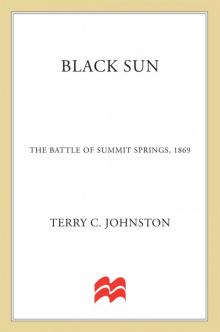 Black Sun, The Battle of Summit Springs, 1869
Black Sun, The Battle of Summit Springs, 1869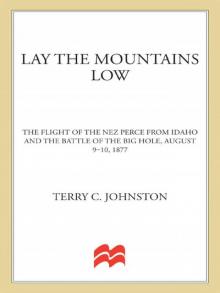 Lay the Mountains Low
Lay the Mountains Low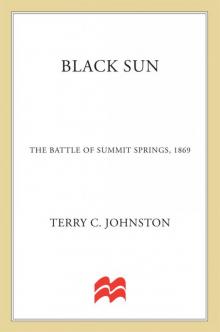 Black Sun: The Battle of Summit Springs, 1869 (The Plainsmen Series)
Black Sun: The Battle of Summit Springs, 1869 (The Plainsmen Series)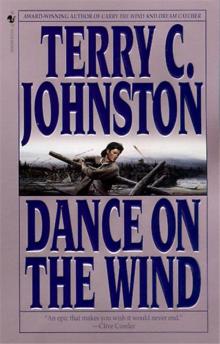 Dance on the Wind tb-1
Dance on the Wind tb-1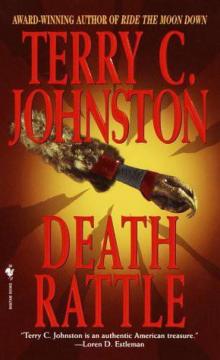 Death Rattle tb-8
Death Rattle tb-8 The Stalkers
The Stalkers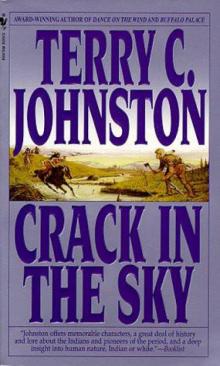 Crack in the Sky tb-3
Crack in the Sky tb-3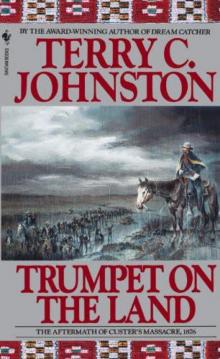 Trumpet on the Land: The Aftermath of Custer's Massacre, 1876 tp-10
Trumpet on the Land: The Aftermath of Custer's Massacre, 1876 tp-10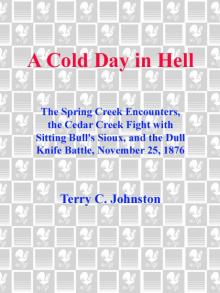 A Cold Day in Hell
A Cold Day in Hell Long Winter Gone: Son of the Plains - Volume 1
Long Winter Gone: Son of the Plains - Volume 1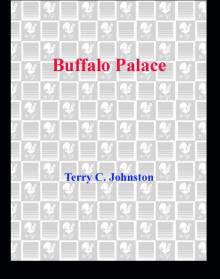 Buffalo Palace
Buffalo Palace Cries from the Earth
Cries from the Earth Death Rattle
Death Rattle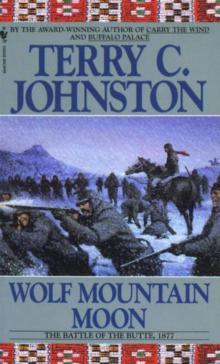 Wolf Mountain Moon: The Battle of the Butte, 1877 tp-12
Wolf Mountain Moon: The Battle of the Butte, 1877 tp-12 Crack in the Sky
Crack in the Sky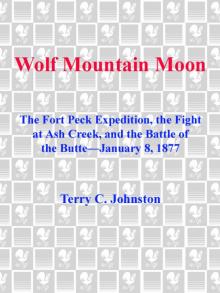 Wolf Mountain Moon
Wolf Mountain Moon Turn the Stars Upside Down: The Last Days and Tragic Death of Crazy Horse
Turn the Stars Upside Down: The Last Days and Tragic Death of Crazy Horse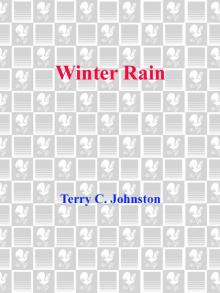 Winter Rain
Winter Rain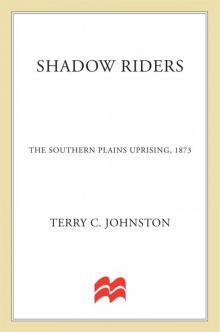 Shadow Riders: The Southern Plains Uprising, 1873 (The Plainsmen Series)
Shadow Riders: The Southern Plains Uprising, 1873 (The Plainsmen Series)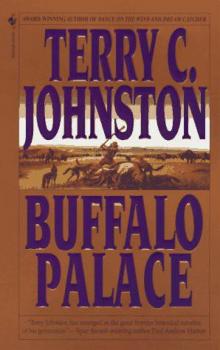 Buffalo Palace tb-2
Buffalo Palace tb-2 Cries from the Earth: The Outbreak Of the Nez Perce War and the Battle of White Bird Canyon June 17, 1877 (The Plainsmen Series)
Cries from the Earth: The Outbreak Of the Nez Perce War and the Battle of White Bird Canyon June 17, 1877 (The Plainsmen Series)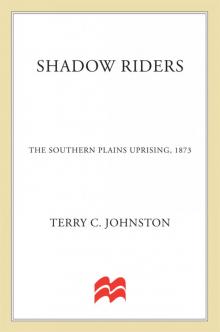 Shadow Riders, The Southern Plains Uprising, 1873
Shadow Riders, The Southern Plains Uprising, 1873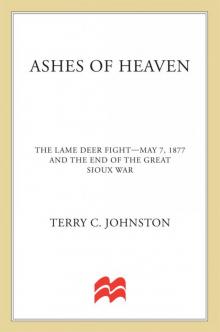 Ashes of Heaven (The Plainsmen Series)
Ashes of Heaven (The Plainsmen Series) Ashes of Heaven
Ashes of Heaven Devil's Backbone: The Modoc War, 1872-3
Devil's Backbone: The Modoc War, 1872-3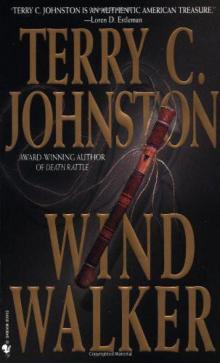 Wind Walker tb-9
Wind Walker tb-9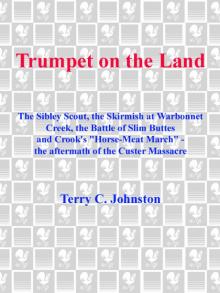 Trumpet on the Land
Trumpet on the Land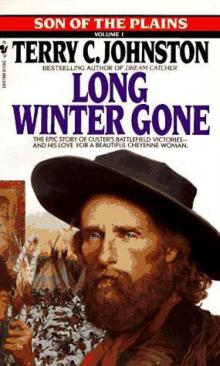 Long Winter Gone sotp-1
Long Winter Gone sotp-1 Dying Thunder
Dying Thunder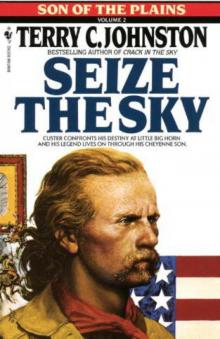 Seize the Sky sotp-2
Seize the Sky sotp-2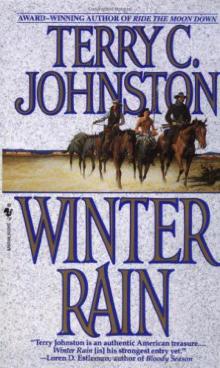 Winter Rain jh-2
Winter Rain jh-2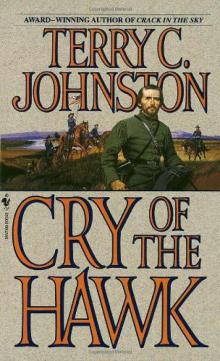 Cry of the Hawk jh-1
Cry of the Hawk jh-1 Sioux Dawn, The Fetterman Massacre, 1866
Sioux Dawn, The Fetterman Massacre, 1866 Sioux Dawn: The Fetterman Massacre, 1866 (The Plainsmen Series)
Sioux Dawn: The Fetterman Massacre, 1866 (The Plainsmen Series)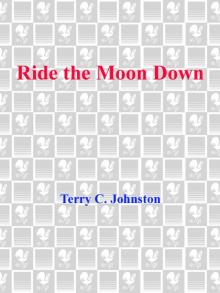 Ride the Moon Down
Ride the Moon Down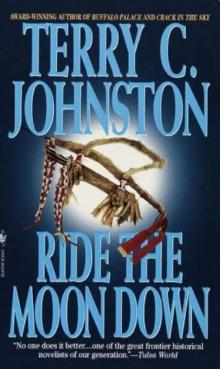 Ride the Moon Down tb-7
Ride the Moon Down tb-7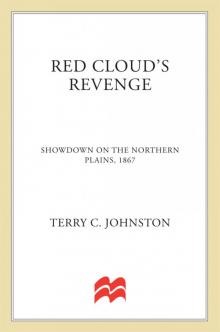 Red Cloud's Revenge
Red Cloud's Revenge Wind Walker
Wind Walker